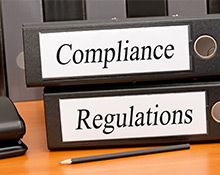The regulations, risk and responsibilities of the legal entity management have been on the rise, especially because firms have their operations across the world. Parent companies across the world have been nullifying this problem by maintaining strong subsidiary governance framework, preventing expensive financial and reputational damage of the brand.
Among many aims of compliance in a subsidiary framework, the most important ones are being listed below:
- The first and foremost agenda of any subsidiary compliance is to protect the shareholder value, this is more imperative than ever for public listed companies.
- To glance beyond just the parent company’s governance and to speculate other groups as well.
- To shift regulator’s focus from business units to legal entities.
- To multiply the effect of operating complex and unwieldy group structures those come with international regulatory developments.
- For better identification, understanding and migration of foreign subsidiaries that carry greater financial, tax, commercial and operations risks.
That being said, it is not absolutely fair to ignore the ironical risks that come with subsidiary governance. These risks include personal exposure of directors and officers, regulatory mitigation failure and potentially unauthorized commitments. However, corporate governance should forever be an innate counter-component of an organization’s compliance management framework. This ensures timely audits and legal entity management processes and controls.
Going in for a subsidiary governance strategy comes with a few questions organizations need to answer to themselves:
- What’s the number of subsidiaries you own?
- Are the governance principles you have in place common?
- Who okays the governance and what criteria do they follow?
- Who is responsible for dissolving unnecessary subsidiaries?
Web and technology have made operations of global companies easier and have had a positive impact on their pace of business. The same can be true for subsidiary corporate governance. Technology should become the anchor of the governance framework. It is the means by which a global company with myriad legal entities can precisely supervise the activities of its subsidiaries. The parent company will know how many entities it has at any given time and will be able to provide regulators, management and directors with accurate timely information.
Related Video

Raghuram is a former Happiest Mind and this content was created and published during his tenure.








